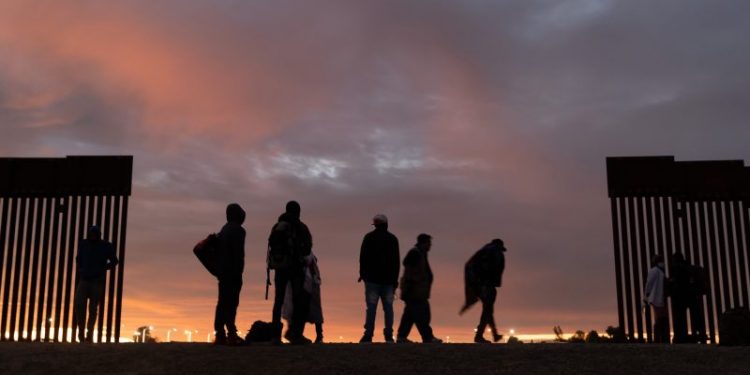The border wall has never been more popular. The construction of a physical barrier along the U.S.-Mexico border has been a controversial topic for many years. Proponents argue that a wall is necessary to enhance national security, curb illegal immigration, and prevent drug trafficking. On the other hand, critics question the effectiveness of a border wall and raise concerns about environmental impact and human rights. Despite the ongoing debate, recent trends indicate that support for the border wall is on the rise.
One significant factor contributing to the increased popularity of the border wall is the rise of anti-immigration sentiment in the United States. In recent years, there has been a growing fear of immigrants taking American jobs and draining public resources. This concern has fueled support for stricter immigration policies, including the construction of a physical barrier along the southern border. Proponents of the border wall argue that it will serve as a deterrent to illegal immigration and help protect American jobs and resources.
Another reason for the growing popularity of the border wall is the perceived connection between illegal immigration and crime. Many Americans believe that illegal immigrants are responsible for crimes such as drug trafficking, human trafficking, and gang activity. This perception has led to calls for stronger border security measures, including the construction of a physical barrier. Proponents of the border wall argue that it will help prevent criminals and terrorists from entering the country illegally, thus enhancing national security.
The Trump administration’s strong stance on immigration has also played a significant role in increasing support for the border wall. President Trump made border security a central issue of his campaign and has continued to push for the construction of a wall during his time in office. His tough rhetoric on immigration has resonated with many Americans who view illegal immigration as a threat to national security and public safety. As a result, support for the border wall has grown among those who align with the president’s views on immigration.
Despite the increasing popularity of the border wall, there are still many challenges and controversies surrounding its construction. Critics argue that a physical barrier is not an effective solution to illegal immigration and that other measures, such as increased border surveillance and technology, would be more cost-effective and humane. They also raise concerns about the impact of a border wall on the environment and wildlife, as well as the potential violation of the rights of border communities and indigenous peoples.
In conclusion, the border wall has never been more popular than it is today due to a combination of anti-immigration sentiment, concerns about crime, and strong political leadership. While the construction of a physical barrier along the U.S.-Mexico border remains a divisive issue, it is clear that support for the border wall is on the rise. As the debate continues, it is essential for policymakers to consider the various perspectives and implications of building a wall in order to make informed decisions about immigration and border security.

















